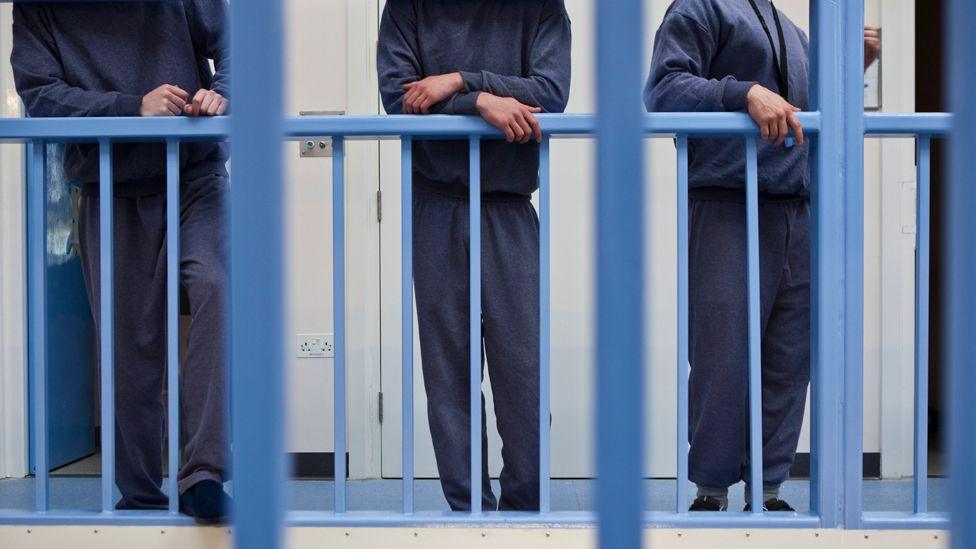Reoffending prisoner was let out by mistake, BBC told

- Published
A man who is accused of committing a sexual offence within hours of being let out of prison under the government's early release scheme was freed in error, the BBC has been told.
Amari Ward, 31, was one of 37 prisoners who should not have been eligible for the early release scheme because they had breached restraining orders.
When police investigated Ward's case, it emerged he and the others had been convicted under an outdated law, which was not recognised during checks.
All but one of those mistakenly released have been located, the Ministry of Justice has confirmed.
Ward is due to attend Maidstone Crown Court next month.
The early release scheme was introduced to ease serious overcrowding in prisons, with some inmates let out after they had served 40% of their sentence rather than 50%.
The government had said those convicted of offences linked to domestic abuse - including breaching a restraining order - would not be eligible for early release.
However, 37 men's crimes had incorrectly been prosecuted under outdated legislation from 1997.
That meant the system did not recognise they were ineligible for release. It only looked at offences under the Sentencing Act 2020.
The MoJ suggested the issue had been fixed for forthcoming early releases and all victims had now been contacted.
Charlie Taylor, chief inspector of HM Prisons, told the BBC it was "disappointing and particularly concerning" that several prisoners had been mistakenly let out, adding it was a concern that a "lack of quality preparation is being done" ahead of prisoners coming back into society.
"People going out from prison without the work being done to help them resettle, without proper housing, allocated drugs, mental health workers - there is a risk they will fall back into reoffending".
He said the scheme has eased the overcrowding of prisons, but said more work must be done in the long term to reassess how prison populations are managed.
"The scheme was only ever going to be a sticking plaster around a bigger piece of thinking around who we lock up, how long they are locked up for and what happens to them afterwards".
Which prisoners are being released early from jail?
- Published11 December 2024
Some prisoners released early without being tagged
- Published19 September 2024
Courts told to delay sentencings over prison space
- Published23 August 2024

Sign up for our Politics Essential newsletter to read top political analysis, gain insight from across the UK and stay up to speed with the big moments.
It’ll be delivered straight to your inbox every weekday.